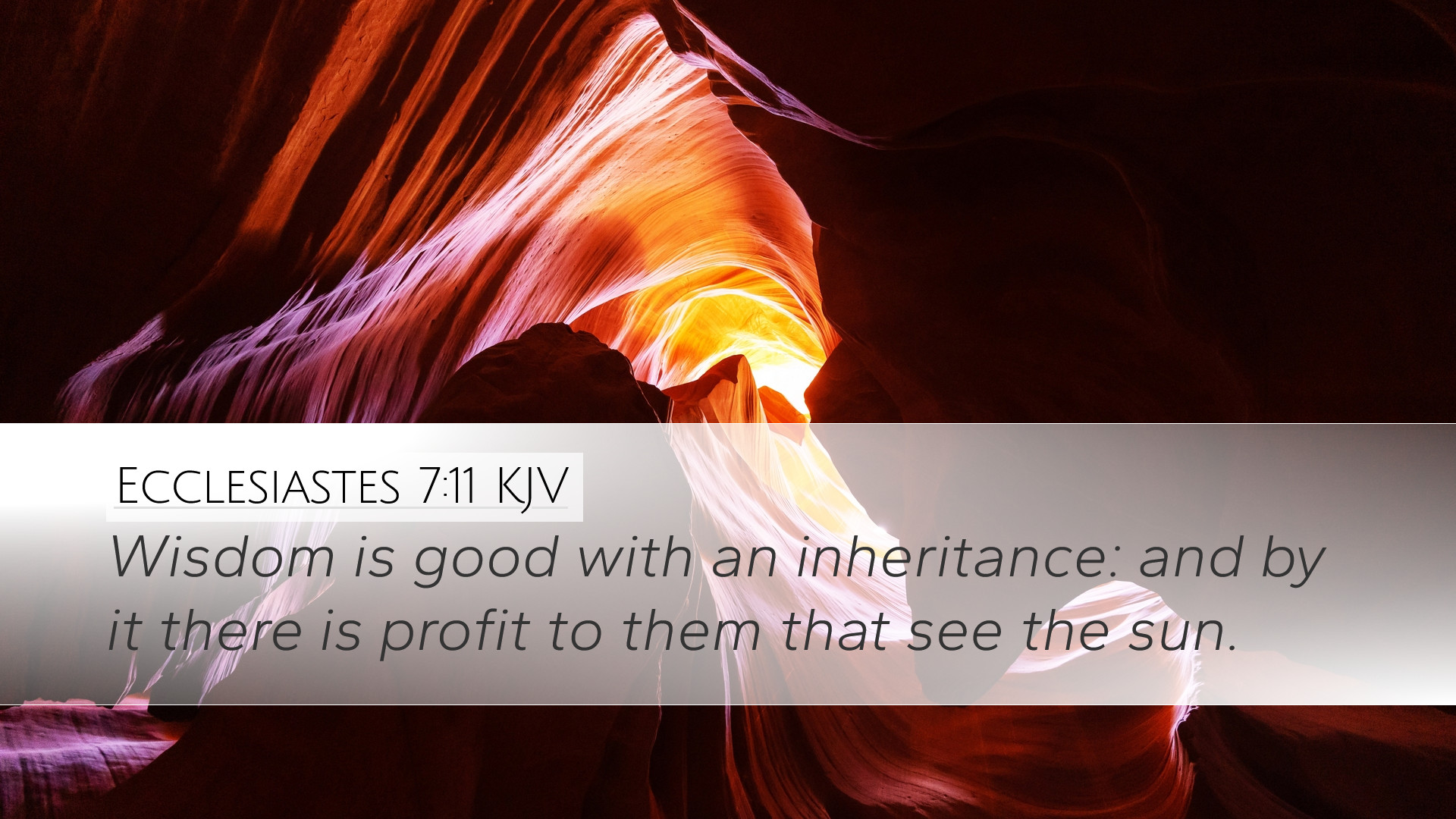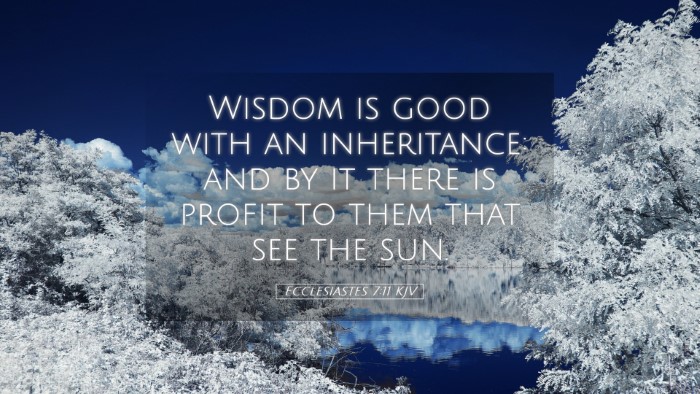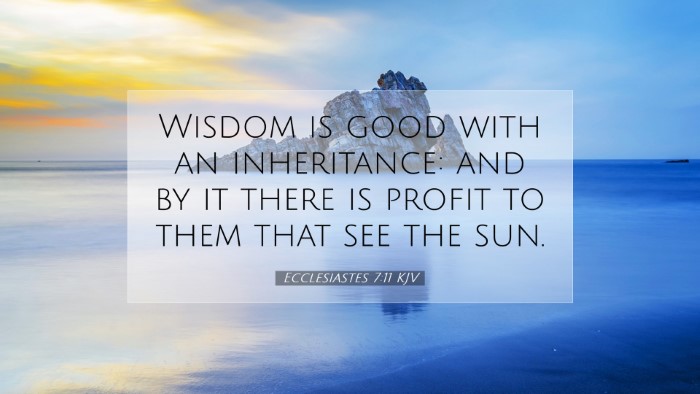Ecclesiastes 7:11
Verse: "Wisdom is good with an inheritance: and by it there is profit to them that see the sun." (Ecclesiastes 7:11)
Introduction
The book of Ecclesiastes, traditionally attributed to Solomon, is often characterized by its contemplative tone and exploration of the meaning of life. In Ecclesiastes 7:11, we see a profound statement about wisdom and its relationship to inheritance and profit. This commentary seeks to provide insights from various public domain sources to elucidate this verse's rich meaning, particularly for pastors, students, theologians, and Bible scholars.
Analysis of the Verse
This verse encapsulates a comparison between two significant aspects of human experience: wisdom and material inheritance. Here, "wisdom" is not merely intellectual knowledge; rather, it is the practical application of knowledge that leads to a successful and fulfilling life. "Inheritance" refers to the material wealth passed down through generations. Both elements are essential for a prosperous life, and Ecclesiastes 7:11 presents them in a complementary manner.
Wisdom Defined
Matthew Henry comments that wisdom is more valuable than "gold and rubies," suggesting that it should be sought above all earthly treasures. In this context, wisdom provides a foundation for understanding and navigating life's complexities. Henry further emphasizes that while an inheritance can bestow financial security, it is the wisdom that enables one to utilize that inheritance effectively and righteously.
The Nature of Inheritance
Albert Barnes highlights that an inheritance is often viewed as a blessing, something that provides comfort and security. However, in the absence of wisdom, such wealth can lead to ruin rather than prosperity. Barnes points out that those who possess both wisdom and inheritance are fortunate, as they can enjoy life fully and responsibly, steering clear of common pitfalls associated with material wealth.
The Profit of Wisdom
The latter part of the verse speaks of profitability: “and by it there is profit to them that see the sun.” Here, the "sun" symbolizes life and the opportunities it presents. Adam Clarke elaborates that this phrase connotes those who are living and experiencing the world directly. The profit of wisdom, therefore, is experiential and practical; it allows individuals to navigate the day-to-day challenges of life successfully.
Experiential Learning
This profit extends beyond mere academic knowledge—it's about applying wisdom to make sound decisions that enhance life quality. Clarke asserts that wisdom teaches restraint, discernment, and promotes a deeper understanding of one's mortality, leading to a more meaningful existence.
Wisdom vs. Material Wealth
In the cultural context of Solomon’s time, wisdom was highly esteemed above material possessions. This teaching remains relevant today, as modern society often prioritizes wealth over wisdom. It is essential for pastors and theologians to remind congregations that an inheritance, whether material or spiritual, should be accompanied by the wisdom to appreciate its value appropriately.
Warnings Against Misuse
Matthew Henry warns that without wisdom, inheritance can become a curse rather than a blessing. Families can be divided over wealth, and without sound judgment, riches can lead to destructive behaviors rather than constructive ones. Therefore, those who have received an inheritance must seek wisdom to navigate potential pitfalls.
Theological Implications
This verse carries significant theological weight. It reflects the nature of God as a giver of wisdom, imparting it to those who seek it earnestly. In James 1:5, we find encouragement that God gives wisdom generously to those who ask. Thus, it's not merely our human effort to acquire wisdom; rather, it is a divine gift that aligns us with His purposes.
Application in Ministry
For pastors and ministers, this verse serves as a guiding principle in teaching. Emphasizing the importance of wisdom alongside material stewardship can foster a deeper understanding within congregations about the role of wisdom in managing God-given resources. The dual emphasis can challenge believers to pray for wisdom and to recognize it as a vital component of their spiritual growth.
Conclusion
In summary, Ecclesiastes 7:11 provides timeless wisdom about the interplay between wisdom and inheritance. As elucidated by Matthew Henry, Albert Barnes, and Adam Clarke, true profit in life comes from understanding and applying wisdom to both our inheritances and our daily existence. It serves as a reminder that, ultimately, wisdom is more valuable than material wealth and that it enriches life in a way that money never can.
Reflection for Readers: As you reflect on this verse, consider how you can cultivate wisdom in your own life and ministry. Acknowledge the resources at your disposal, and seek the discernment to use them effectively for the glory of God and the benefit of those around you.


